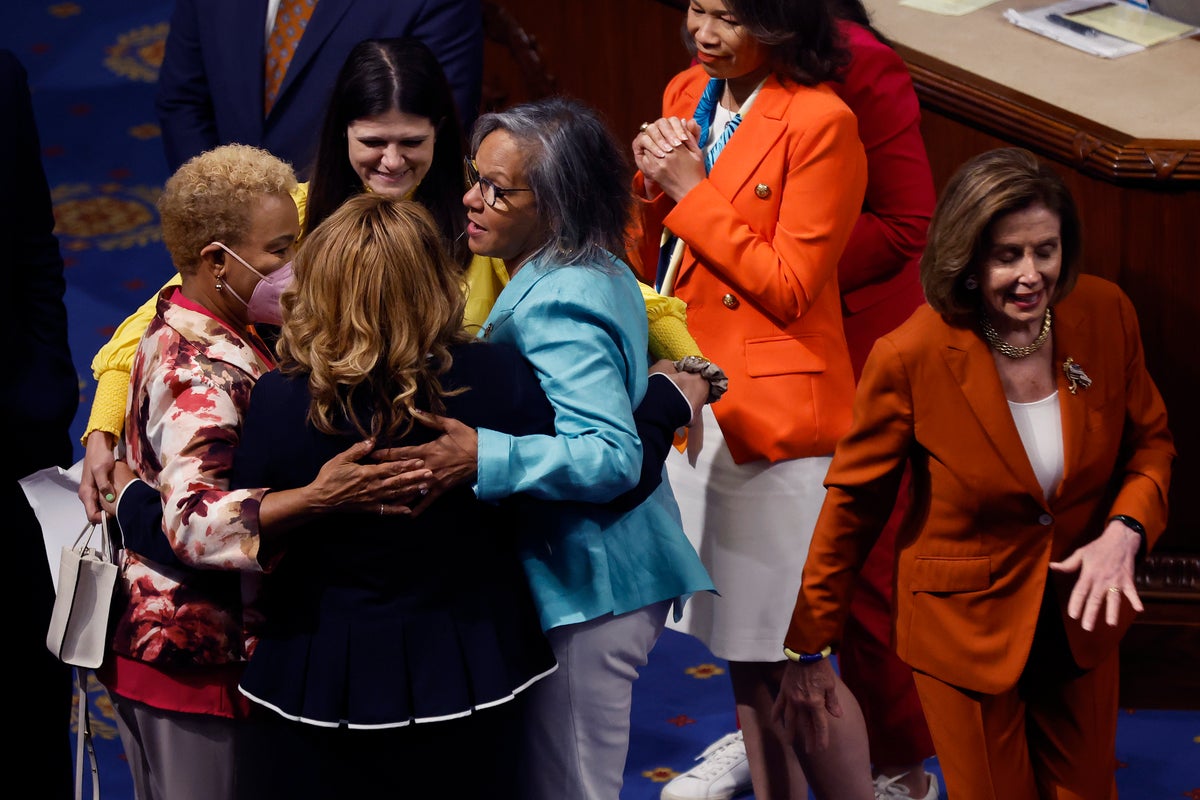
The House of Representatives voted on a bipartisan basis to pass gun legislation that had already cleared the Senate, sending it to President Joe Biden’s desk for a signature.
Every Democratic member of Congress and 14 Republicans voted on Friday to pass the legislation that the Senate voted on late on Thursday.
Representatives Adam Kinzinger of Illinois, Liz Cheney of Wyoming, Tom Rice of South Carolina, Maria Elvira Salazar of Florida, John Katko of New York, Chris Jacobs of New York, Anthony Gonzalez of Ohio, Tony Gonzales of Texas, Fred Upton of Michigan, Steve Chabot of Ohio, David Joyce of Ohio, Brian Fitzpatrick of Pennsylvania and Peter Meijer of Michigan joined all 220 Democrats to vote for the legislation.
The legislation came after a white supremacist allegedly killed 10 people at a supermarket in Buffalo and another gunman in Uvalde, Texas killed 19 children and two adults at Robb Elementary School.
In response, Senate Minority Leader Mitch McConnell tasked Senators John Cornyn of Texas and Thom Tillis of North Carolina in his conference with negotiating with Senators Chris Murphy of Connecticut and Kyrsten Sinema of Arizona.
Among the Republicans who voted for the legislation, Mr Upton, Mr Kinzinger, Mr Jacobs and Mr Gonzalez are retiring. Last week, Mr Rice lost his primary race to Russell Fry largely due to the fact Mr Rice voted to impeach former president Donald Trump for his role in the January 6 riot.
Ms Cheney and Mr Meijer are both facing major primary challenges by Trump-endorsed Republicans. Both of them voted to impeach Mr Trump as well as Mr Kinzinger and Mr Gonzalez.
The legislation would examine the juvenile and mental health records of people under 21 who want to purchase a firearm and would lengthen the maximum time period to gather information from 3 days to 10 days. Should those days lapse without any concern, a sale can proceed.
The bill also includes a $750m (£610m) grant programme to encourage states to adopt “red flag laws” that allow authorities to obtain court orders to prevent someone who might pose a threat to themselves or others from obtaining a firearm. People who conduct “straw purchases”--wherein someone who can pass a background check purchases a gun for someone who cannot--could also face up to 15 years in prison, or 25 if the gun was involved in an act of terrorism or drug trafficking.
One of the most contentious points during the debate between Democrats and Republicans was closing the “boyfriend loophole.” Under current law, people with a current or past “continuing serious relationship of a romantic or intimate nature” with a victim will be denied access to firearms and their names will be added to the FBI’s National Instant Background Check System. Under current law, people who commit domestic violence are only barred from accessing a firearm if they are married, live with or have a child with their victim.
It also clarifies federal licensing requirements for gun dealers and includes more resources for mental health. In addition, Republicans also scored a big victory as increases investment in school mental health programmes, crisis intervention, violence prevention, training for mental health workers and school safety and security measures.
The legislation now goes to Mr Biden’s desk and he has already indicated he would sign it.
-Joe Somerland contributed to this report.







